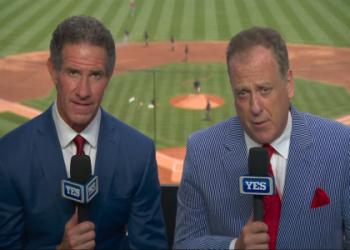Well now, let me tell ya somethin’ about these here “ichiro suzuki baseball card” things. I ain’t no expert, mind you, but I’ve seen a thing or two in my day, and I reckon I can spin a yarn about them cards.

First off, what makes these cards worth somethin’? It ain’t just the picture of that there Ichiro fella, though he’s a fine player, no doubt. It’s a whole bunch of stuff mixed together. Condition, that’s a big one. If the card’s all beat up and creased, well, it ain’t gonna be worth much, is it? It’s like tryin’ to sell a dented-up can of beans – nobody wants it. They got these companies, PSA and BGS, that grade the cards, put ‘em in little plastic cases, you know, to keep ‘em safe. The better the grade, the more money it’ll fetch.
Then there’s this thing called rarity. That just means how many of them cards are floating around. If they made a whole heap of ‘em, well, they ain’t gonna be so special. But if they only made a few, now that’s a different story. Like them old Honus Wagner cards, they say there ain’t many of them left, and that’s why they cost a fortune. Folks are always clamorin’ for somethin’ they can’t easily get.
And don’t forget about the age of the card. The older it is, the more likely it is to be worth somethin’, seein’ as how things get lost or thrown away over time. An Ichiro rookie card, that’s the one from when he first started playin’, that’s gonna be worth more than a card from later in his career, most times anyways. It’s like findin’ an old coin in the attic – it’s a piece of history, you know?
Then there’s the player himself, his popularity. Now, Ichiro, he was a real good hitter, and lots of folks liked watchin’ him play. He had all them hits, broke all kinds of records. So his cards are popular, which means more folks want ‘em, and that drives the price up. It’s like sellin’ fresh pies at the county fair – if everyone wants a slice, you can charge a bit more.
Sometimes, a card has somethin’ extra special, like autographs. If Ichiro himself signed the card, well, that’s gonna make it worth a whole lot more. Or maybe it’s a limited edition, meanin’ they only made a certain number of ‘em. These things make a card stand out from the rest, make it more desirable.
- Condition is everything. A beat-up card ain’t worth much.
- Rarity matters. The fewer there are, the more valuable they become.
- Age is a factor. Older cards, especially rookie cards, are often worth more.
- Player popularity drives demand. Ichiro’s a popular player, so his cards are sought after.
- Special attributes increase value. Autographs and limited editions are a big deal.
Now, I hear tell there was a time back in the eighties and nineties when they made a whole bunch of baseball cards, so many that they weren’t worth much. But even then, some of them early cards from the eighties, they weren’t made in such big numbers, so they might still be worth somethin’. It’s all about supply and demand, you see. Too much supply, and the price goes down. Not enough supply, and the price goes up. It’s just like the price of eggs, sometimes they’re cheap, and sometimes they cost an arm and a leg.
And where do you go to find these cards, or figure out what they’re worth? Well, there’s places online now, like that COMC place, where folks sell all kinds of cards. You can look and see what similar cards have sold for recently, that’ll give you an idea of the value. It ain’t always easy though, there’s a lot of cards out there, and the prices are always changin’. It’s like tryin’ to predict the weather – sometimes you get it right, and sometimes you’re left scratchin’ your head. You can look for “ichiro suzuki rookie cards” or just “ichiro suzuki baseball cards” and see what pops up.
So, there you have it, a little somethin’ about ichiro suzuki baseball card values. It ain’t rocket science, but it ain’t always easy neither. You gotta look at the condition, the rarity, the age, the player, and any special features. And you gotta keep an eye on the market, see what folks are willin’ to pay. It’s a bit of a gamble, just like plantin’ crops – sometimes you get a good harvest, and sometimes you don’t. But if you do your homework, you just might find yourself holdin’ a card worth a pretty penny.














